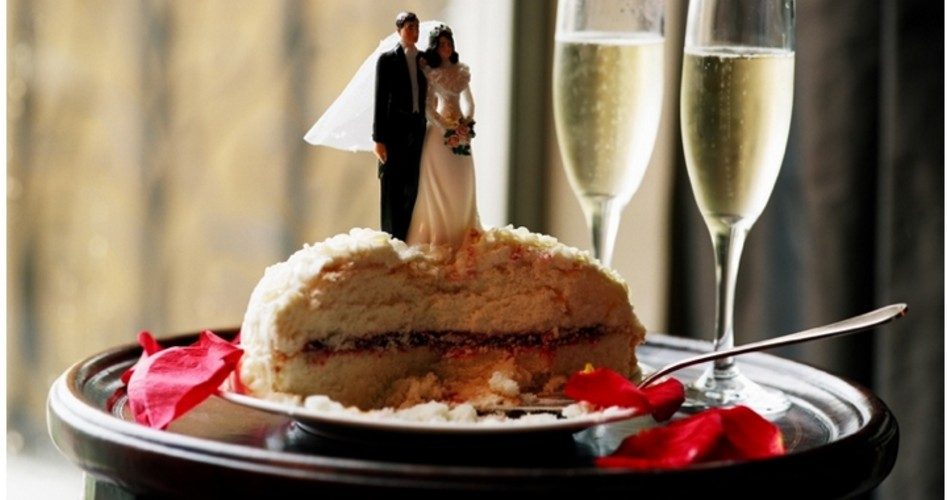
It was the baker’s dozen of discrimination. A Christian went to 13 pro-homosexual bakeries and requested a cake with a Christian message.
And he was refused service every time.
It was reported in November that a baker was facing legal consequences for refusing to bake a cake with the message “Support gay marriage.” So Theodore Shoebat — son of Walid Shoebat, an ex-Muslim Christian convert and activist of some repute — decided to find out how well received a corresponding request from an anti-faux-marriage point of view would be. He called 13 prominent pro-homosexual bakers and asked them if they’d bake him a cake bearing the words “Gay marriage is wrong.”
https://www.youtube.com/watch?v=AJaroR_qTNs
https://www.youtube.com/watch?v=ptgAKywiHG0
https://www.youtube.com/watch?v=Q9YIJGnM-k4
In addition to being universally refused service, obscenities and hateful language were directed at him.
One baker even said that she would make Shoebat “a cookie with a large phallus on it.”
Shoebat posted videos of his overtures to the bakers, and the language does get quite nasty. He also received feedback that well illustrated the fuzzy thinking surrounding the issue in question. For instance, Inquisitr related one exchange in which a baker contrasted what she saw as the difference between her refusal of Shoebat’s request and the Christian bakers who have been persecuted by government for refusing to bake faux-marriage “wedding” cakes (examples of such cases are found here and here):
It was the act of making a cake that directly attacked her core belief — the statement “Gay marriage is wrong” — with which the woman had a problem.
In the Christian bakery cases, the woman points out, many are refusing to make cakes for gay couples, period, and “that is wrong,” she said.
Except that what the woman “points out” is incorrect.
Now, she certainly has a right to refuse to be party to a message she finds objectionable. But how is the matter different in the Christian bakers’ cases? None of them said they wouldn’t serve homosexuals; they’ve simply refused to be party to creating cakes with homosexual or faux-marriage messages or symbolism. If a homosexual had requested a traditional wedding cake, he would have been served; in keeping with this, if a heterosexual had approached the earlier-cited baker and asked for a cake stating “Support gay marriage” — and many straight people do advance that cause — he would have been refused.
Conclusion: It’s not the person’s sexual inclinations that have been the determining factor in any of these cases.
It is the requested messages.
This was never clearer than in the Kentucky case of a Christian printing company, Hands On Originals, in which it refused to print t-shirts with language promoting the Lexington Pride Festival. While a local human-rights commission ruled against the business in October on the basis that it was discriminating against a protected group, as owner Blaine Adamson had explained in a 2012 Kentucky.com op-ed:
My decision not to print the shirts requested of us has nothing to do with who was ordering the shirts; it had only to do with the message of the shirts no matter who was ordering them.
In this situation, the message is in disagreement with my values. My faith calls me to love all people regardless of whether they share my values or not.
… All I ask is for people to respect my right as an owner to not produce a product that is contrary to my principles.
Yet while this respect is shown to the pro-homosexual business owners, it’s not offered to the Christian ones. And this again brings us to the fatal flaw in the Left’s argument. Many try to liken the actions of the Christian businessmen to those of people who would refuse service to blacks, but the proper analogy is refusing service to people — of any race — who ask for a black-power message to be put on a product.
People aren’t positions.
Messages aren’t men.
The Left likes to say that freedom of religion also includes freedom from religion, and they’re correct insofar as free exercise involves the right to not engage in or facilitate religious practice. But freedom of speech also includes freedom from speech, insofar as it involves the right to not engage in or facilitate speech. Forced speech is not free speech.
The real illegal (as in unconstitutional) discrimination here?
When the government starts punishing business owners based on what messages they don’t want to be party to. That is an example of the state trampling on First Amendment rights. It is unconstitutional.
And aside from the explicit violation of a constitutional provision here, many would say there’s also the violation of an implicit one: freedom of association. As to this, no one would deny you the right to include in, or exclude from, your home whomever you please.
Why should you lose that right simply because you decide to sell cakes out of it?
It’s still your property, paid for with your money — and created by the sweat of your own brow.
Someone else who has defended freedom of association is George Mason University professor Walter Williams. As The New American wrote in August:
After mentioning older violations of the principle that people would today consider tyrannical — such as Virginia anti-miscegenation laws (prohibiting interracial marriage) and a Baltimore regulation forbidding whites and blacks from playing tennis together in public parks — he [Williams] asked in his 2002 piece “Freedom of Association,” “whether Virginia’s laws would have been more acceptable if instead of banning interracial marriages, it mandated interracial marriages?” Would Baltimore’s governmental intrusion have been any less “offensive if the regulation had required blacks and whites to play tennis with one another”?
Williams then wrote:
While Americans would agree there should be freedom of association in the specific cases of marriage and tennis, what about freedom of association as a general principle? …Suppose I’m looking to hire an employee. You show up for the job, but I don’t want to deal with you. My reasons might be that you’re white, you’re a Catholic, you’re ugly, you’re a woman or anything else about you that I find objectionable. Should I be forced to hire you? You say, “Williams, that’s illegal employment discrimination.” You’re right, but it still has to do with freedom of association — and either you’re for or against freedom of association as a general principle.
That people should be forced to associate in ways they find objectionable is already widely accepted. The question is, will we now also force them to be party to speech they find objectionable?
Constitutionalists, where art thou?



